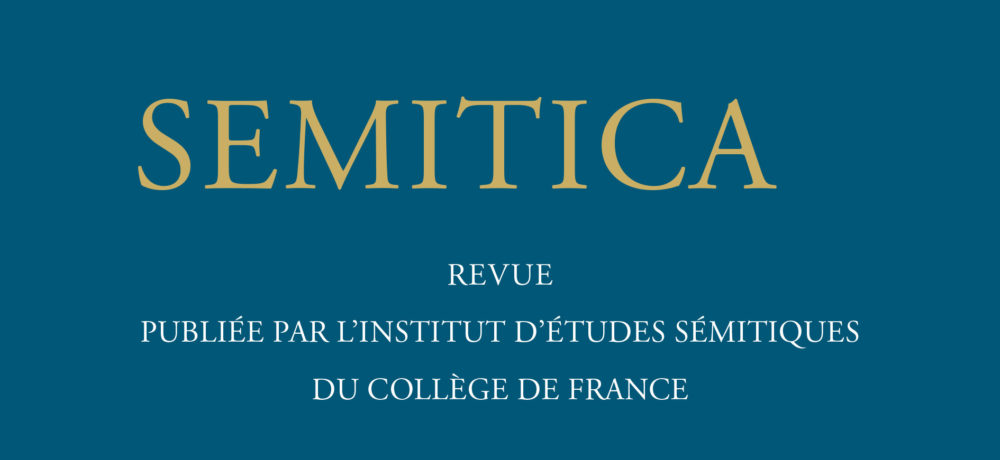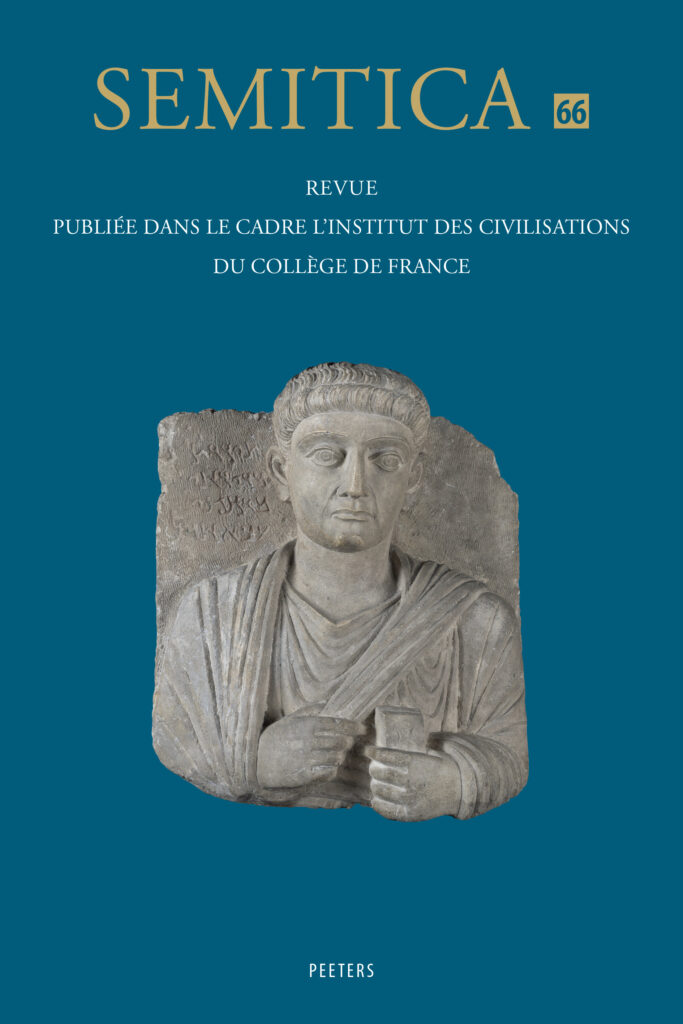Welcome to Semitica!
If you want to read the electronic or paper version of Semitica, please visit our publisher’s website.
Semitica was founded in 1948 by the Institute of Semitic Studies, now at the College of France. Semitica covers all branches of Semitic studies: linguistics, philology, history, archaeology, epigraphy, and all areas of the Semitic world, ancient and modern, as well as related fields.
English contributions are welcome and will be submitted to double-blind peer-review. Please submit .DOC(X) or .RTF files only (together with a PDF output), using Unicode fonts and automatic footnotes. Authors are free to use their preferred manual of style (Chicago, SBL…), but must be consistent throughout their paper. You may use the SemiticaStyle.doc template, which contains styles and guidelines (in PDF format: SemiticaStyle.pdf). If you want to include photographs, do not embed them in your document, but submit them in their original format (TIFF, PSD, PNG, JPEG…), as separate high-definition files; you can then mention in your document where you want a certain image to be placed, together with its caption.
Please do not hesitate to contact me!
Michael Langlois,
Scientific Editor.

